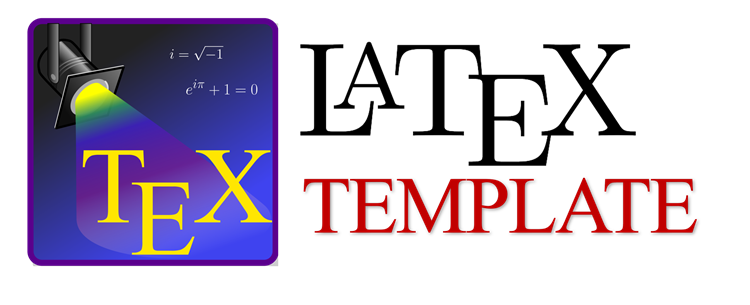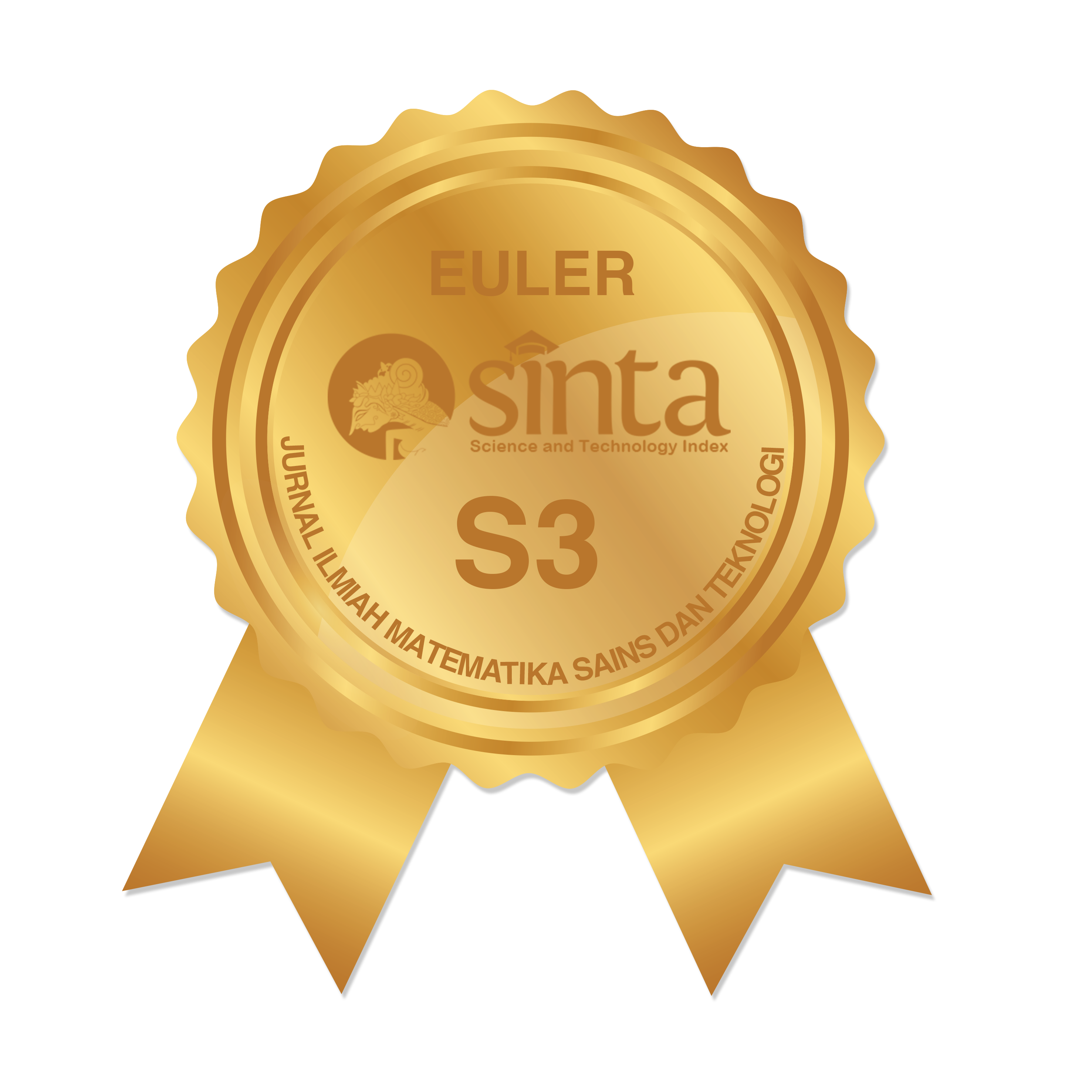EFEKTIVITAS PEMBELAJARAN MELALUI PENDEKATAN PROBLEM-CENTERED LEARNING PADA POKOK BAHASAN TEOREMA PYTHAGORAS
Abstract
Keywords
Full Text:
PDFReferences
V. Damopolii, N. Bito, and R. Resmawan, "Efektifitas Media Pembelajaran berbasis Multimedia pada Materi Segiempat" Algoritm. J. Math. Educ., vol. 1, no. 2, pp. 74-85, 2019, doi: 10.15408/ajme.v1i1.
S. Khadijah, S. Ismail, and R. Resmawan, "Pengembangan Bahan Ajar Berbasis Penalaran pada Materi Sudut Pusat dan Sudut Keliling Lingkaran" Al-Khwarizmi J. Pendidik. Mat. dan Ilmu Pengetah. Alam, vol. 8, no. 1, pp. 1-12, Apr. 2020, doi: 10.24256/jpmipa.v8i1.838.
S. D. Tamu, E. Hulukati, and I. Djakaria, "Pengembangan Modul dan Video Pembelajaran Matematika Persiapan Ujian Nasional pada Materi Dimensi Tiga" Jambura J. Math. Educ., vol. 1, no. 1, pp. 21-31, Mar. 2020, doi: 10.34312/jmathedu.v1i1.4558.
R. Resmawan, "Hubungan antara Pesepsi Mahasiswa terhadap Keterampilan Dosen dalam Mengelola Kelas dengan Hasil Belajar Mahasiswa Jurusan Pendidikan Matematika." J. Euler, Vol. 2, No. 2, pp.129-134, 2014.
S. An, G. Kulm, and Z. Wu, "The Pedagogical Content Knowledge of Middle School, Mathematics Teacher in China and the U.S." Journal of Mathematics Teacher education, vol. 7, no. 2, pp. 145-172, Jun. 2004, doi: 10.1023/B:JMTE.0000021943.35739.1c.
F. Indriani, "Kompetensi Pedagogik Guru dalam Mengelola Pembelajaran IPA di SD dan MI, " Fenomena, vol. 7, no. 1, p. 17, Jun. 2015, doi: 10.21093/fj.v7i1.267.
L. P. Apriliana, I. Handayani, and S. A. Awalludin, "The Effect of Problem-Centered Learning on Student's Mathematical Critical Thinking"Journal of Research and Advances in Mathematics Education, vol. 4, no. 2, pp. 124-133 , Jul 2019, doi : 10.23917/jramathedu.v4i2.8386
S. Dewanti, "Perpaduan PCL dan Pelatihan Metakognitif dalam Meningkatkan Kemampuan Masalah Matematika" Jurnal Penelitian dan Evaluasi Pendidikan., vol. 12, no. 1, p. 21, Sep. 2013, doi: 10.21831/pep.v13i1.1400.
E. Rinaldi, and E. A. Alfriansyah, "Perbandingan Kemampuan Pemecahan Masalah Matematis Siswa antara Problem-Centered Learning dan Problem Based Learning" Numerical: Jurnal Matematika dan Pendidikan Matematika, vol. 3, no. 1, pp. 9-18, Jun. 2019, doi: 10.25217/numerical.v3i1.326.
Khanifatul, Pembelajaran Inovatif. Jogjakarta: Ar-Ruzz Media, 2012.
Mulyasa, Pengembangan dan Implementasi Kurikulum 2013. Bandung: PT Remaja Rosdakarya, 2014.
Daryanto, Inovasi Pembelajaran Efektif. Bandung: Yrama Widya, 2013.
U. Hamzah, and N. Mohammad, Belajar dengan Pendekatan Pailkem. Jakarta: Bumi Aksara, 2011.
G. P. A. Akhmad, Masriyah, "Efektivitas Pembelajaran Matematika dengan Pendekatan Model-Eliciting Activities (MEas) pada Materi Persamaan dan Pertidaksamaan Linier Satu Variabel di Kelas VIII-A SMP Negeri 1 Lamongan" Math edunesa Jurnal Ilmiah Pendidikan Matematika., vol. 3, no. 2, pp. 97-102, 2014.
P. N. J. M. Sinambela, Y. Wau, and T. A. Hutapea, "Effectiveness of Character Education Model in Unimed to Improve Student's Creativity" 3rd Annual International Seminar on Transformative Education and Educational Leadership., vol. 200, pp. 885-888, Jan. 2017, doi: 10.2991/aisteel-17.2017.14.
DOI: https://doi.org/10.34312/euler.v8i1.10362
Refbacks
- There are currently no refbacks.
Copyright (c) 2020 Melisa Mutiara Lestari Puloo, Abdul Wahab Abdullah, Tedy Machmud

This work is licensed under a Creative Commons Attribution-NonCommercial 4.0 International License.
Euler : Jurnal Ilmiah Matematika, Sains dan Teknologi has been indexed by:
EDITORIAL OFFICE OF EULER : JURNAL ILMIAH MATEMATIKA, SAINS, DAN TEKNOLOGI |
 | Department of Mathematics, Faculty of Mathematics and Natural Science, Universitas Negeri Gorontalo Jl. Prof. Dr. Ing. B. J. Habibie, Tilongkabila, Kabupaten Bone Bolango 96554, Gorontalo, Indonesia |
 | Email: [email protected] |
 | +6287777-586462 (WhatsApp Only) |
 | Euler : Jurnal Ilmiah Matematika, Sains dan Teknologi (p-ISSN: 2087-9393 | e-ISSN:2776-3706) by Department of Mathematics Universitas Negeri Gorontalo is licensed under a Creative Commons Attribution-NonCommercial 4.0 International License. Powered by Public Knowledge Project OJS. |














